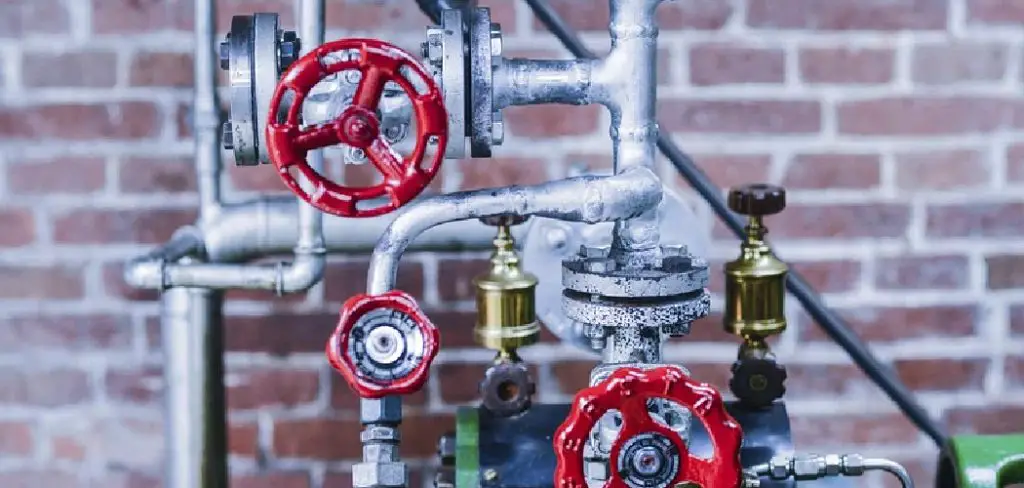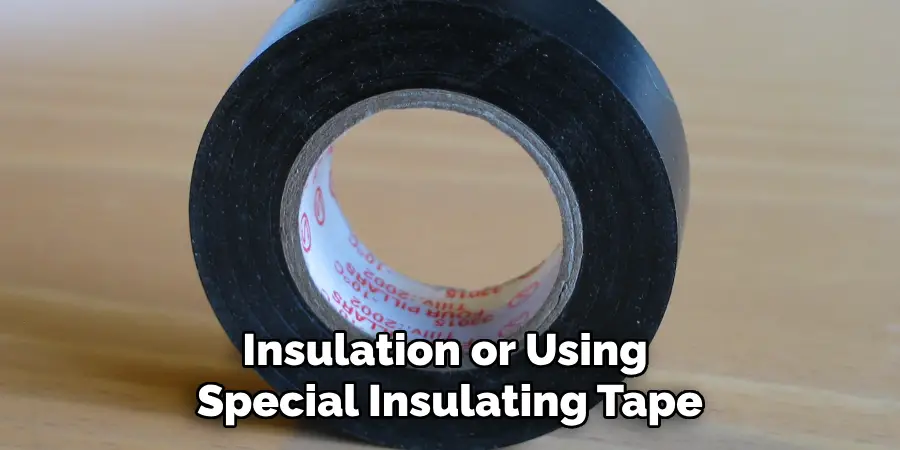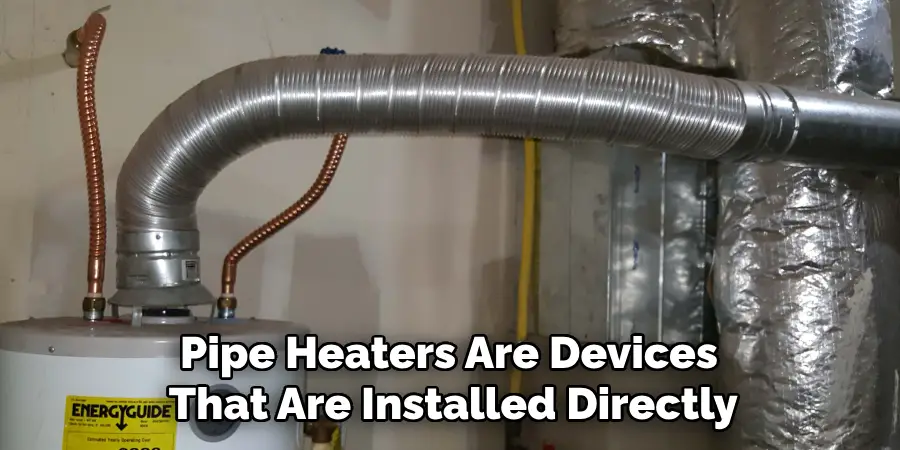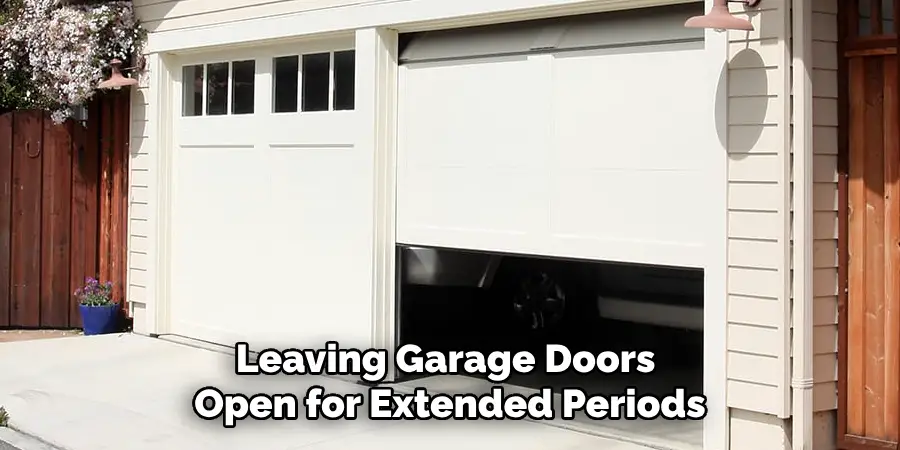Protecting water pipes from freezing is a critical consideration, especially in garage spaces where temperatures can plummet during winter.
The risk of frozen pipes poses not only an inconvenience but also the potential for costly damage. Understanding how to keep water pipes in the garage from freezing involves a combination of insulation, heat sources, and proactive measures.

In this article, we will explore how to keep water pipes in garage from freezing, including insulating exposed pipes, adding heating elements, and sealing gaps to prevent drafts.
By implementing these strategies, you can mitigate the risk of frozen pipes, ensuring a reliable water supply during winter while avoiding the headaches and expenses associated with burst or damaged pipes. Whether your garage is used for storage, as a workshop, or as a parking space, protecting your water pipes is a crucial element of winterizing your home.
Importance of Preventing Water Pipes from Freezing in the Garage
Water pipes that are located in the garage are at high risk of freezing during the colder months. This is because garages are often not insulated or heated, making them prone to lower temperatures. When water pipes freeze, they can burst and cause a significant amount of damage to your property.
This damage can include flooding, mold growth, and structural damage. It can also result in costly repairs and replacements. Therefore, it is essential to take preventive measures to keep your water pipes from freezing in the garage.
Risks and Potential Damage Associated with Frozen Pipes
Freezing pipes can be a major issue for homeowners, especially during the colder months. When water freezes inside pipes, it expands and can cause them to burst. This not only leads to expensive repairs but also poses safety hazards such as flooding and electrical malfunctions.
In addition to bursting, frozen pipes can also disrupt your daily routine by cutting off the water supply and causing inconvenience. These risks and potential damage make it crucial to take preventive measures and keep your water pipes in the garage from freezing.
10 Methods How to Keep Water Pipes in Garage from Freezing
1. Insulate the Pipes
Insulating your water pipes is one of the best ways to keep them from freezing in the winter. This can be done by wrapping them in foam insulation or using special insulating tape.

Make sure to cover all exposed pipes and leave no gaps for cold air to get through. It’s also important to check around your garage for any drafts that could be causing cold air to enter and freeze your pipes.
2. Install a Heating System
Installing a heating system in your garage can help keep your water pipes from freezing during the winter months.
There are several different types of heating systems available, such as electric baseboard heaters or forced-air furnaces. You may also want to consider installing radiant floor heating, which works by circulating hot water through tubes beneath the flooring of your garage.
3. Keep Garage Doors Closed
Keeping your garage doors closed during cold weather can help keep cold air out and warm air in, thus preventing your water pipes from freezing. If you have an attached garage, make sure that the door between the house and the garage is also closed when it’s cold outside.
4. Open Faucets Slightly
Opening faucets slightly during very cold weather can help prevent water pipes from freezing due to pressure build-up inside them. This is because when a pipe freezes, it expands and causes pressure build-up, which could cause it to burst if left unchecked.
Opening faucets slightly will allow some of this pressure to escape, thus preventing damage to the pipes from occurring due to frozen water inside them.
5. Install Pipe Heaters
Pipe heaters are devices that are installed directly onto water pipes in order to keep them from freezing during cold weather conditions. These devices work by circulating warm air around the pipe, thus keeping it at a constant temperature and preventing it from freezing over time.

6. Use Hot Water Bottles
Using hot water bottles on exposed pipes is another effective way of keeping them from freezing during winter months.
Simply fill up a few hot water bottles with warm tap water and place them around any exposed piping in your garage before temperatures drop too low outside; this will provide extra insulation against cold temperatures and help prevent any frozen pipe issues from occurring down the line.
7. Set Up Heat Lamps
Heat lamps are another great way of keeping exposed piping warm enough so that they don’t freeze over during colder months of the year; simply set up one or two heat lamps near any exposed piping you may have running through your garage and turn them on whenever temperatures start dropping outside.
This should help provide extra warmth for any exposed piping so that they don’t freeze over time.
8. Allow Hot Air Circulation
Allowing hot air circulation inside your garage is another great way of keeping exposed piping warm enough so that they don’t freeze over during colder months; simply open up windows or vents inside your garage whenever temperatures start dropping outside so that warmer air can circulate throughout it.
This should help provide extra warmth for any exposed piping so that they don’t freeze over time.
9. Use Space Heaters
Space heaters are another great way of providing additional warmth for any exposed piping running through your garage; simply set up one or two space heaters near any exposed piping you may have running through it before temperatures start dropping too low outside. This should help provide extra warmth for any exposed piping so that they don’t freeze over time.

10. Wrap Pipes with Towels
Wrapping pipes with towels is another simple yet effective way of providing additional insulation against colder temperatures; simply wrap towels around any exposed piping you may have running through your garage before temperatures start dropping too low outside. This should help provide extra warmth for any exposed piping so that they don’t freeze over time.
Things to Consider When Protecting Your Water Pipes
So, you’ve decided to take the necessary measures and protect your water pipes from freezing during the cold winter nights. Great! But before you run off to buy all sorts of insulation materials and tools, there are a few things that you need to consider.
There is no one-size-fits-all solution when it comes to protecting water pipes in garages as different areas have different climate conditions and freezing temperatures. Therefore, it’s essential to understand your local weather patterns and temperature fluctuations before deciding on the best course of action.
Another crucial factor to consider is the location of your water pipes within the garage. Are they exposed or hidden behind walls? Are they in high traffic areas or tucked away in a corner? The location will play a significant role in determining the type and amount of protection needed.
Next, it’s important to assess the current condition of your water pipes. Are they new or old? Have they been previously insulated or not? Knowing their condition will help determine if any repairs or replacements are necessary before adding insulation.
Common Mistakes to Avoid When Keeping Water Pipes from Freezing
Water pipes are an essential part of any home that carries water to various appliances and fixtures. To prevent this from happening in your garage, it is important to know how to properly maintain your water pipes. Unfortunately, there are common mistakes homeowners make that can lead to frozen pipes. In this document, we will discuss these mistakes and how to avoid them.
Neglecting Insulation
One of the main reasons for frozen water pipes in the garage is lack of proper insulation. Many homeowners often overlook the importance of insulating their pipes during colder months.
Without insulation, cold air can easily penetrate through walls and floors and freeze the pipes. It is crucial to insulate any exposed pipes in your garage using foam sleeves or insulation tape. This will help maintain a consistent temperature around the pipes and prevent them from freezing.
Not Closing Garage Doors
Leaving garage doors open for extended periods can also lead to frozen water pipes. The cold air outside can enter through the open doors and quickly freeze the pipes. Make sure to always close the garage doors when not in use, especially during winter months. This will help maintain a warmer temperature and prevent cold air from reaching your water pipes.

Allowing Drafts
Along with closing garage doors, it is important to also check for any drafts or gaps around windows and doors in your garage. These openings can let in cold air and cause the pipes to freeze. Use weather stripping or caulk to seal any gaps and prevent drafts from entering your garage.
Conclusion
In conclusion, maintaining your water pipes in the garage takes a bit of effort, as temperatures can usually drop quite low during winter months.
By investing a bit of time in proper installation and maintenance, and spending resources on high-quality materials for insulation and pipe covers, you’ll save yourself time, energy, and money in the long run by avoiding costly repairs resulting from frozen water pipes.
Now that you’re equipped with these simple solutions on how to keep water pipes in garage from freezing, it’s time to go out there and get started on keeping those precious water pipes safe!

